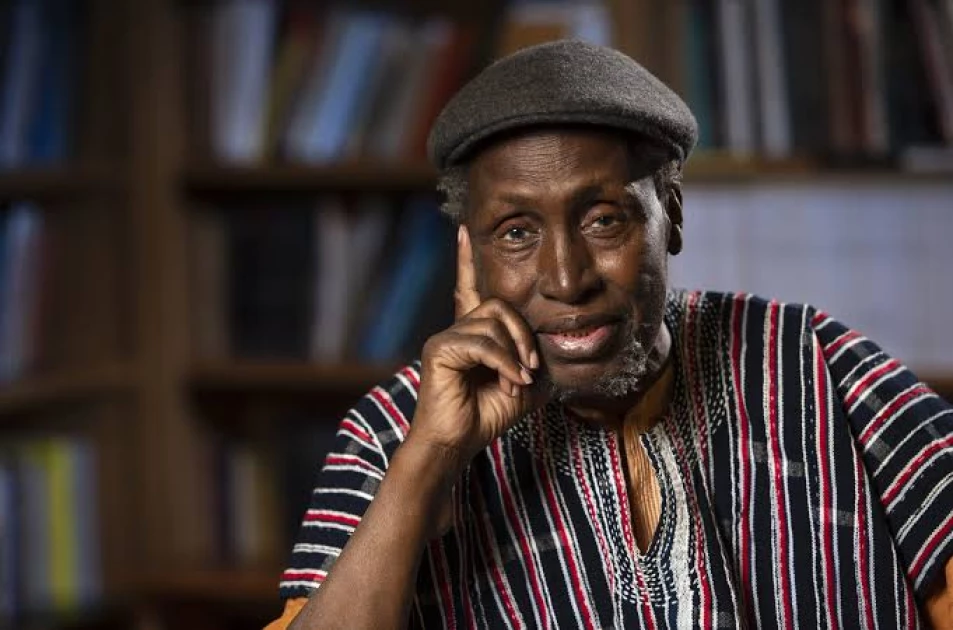Ngũgĩ wa Thiong’o, one of Africa’s most influential writers and thinkers, has died at the age of 87.
The family announced that the acclaimed author passed on Wednesday morning, 28th May 2025, in the United States.
His daughter, Wanjiku wa Ngũgĩ, shared the news in a heartfelt Facebook post: “It is with a heavy heart that we announce the passing of our dad, Ngũgĩ wa Thiong’o this Wednesday morning, 28th May 2025. He lived a full life, fought a good fight. As was his last wish, let’s celebrate his life and his work. Rîa ratha na rîa thŭa. Tŭrî aira!”
She added that family spokesperson Nducu Wa Ngugi will share further details about the celebration of his life in the coming days.
Born on 5th January 1938 in Kamiriithu, near Limuru in Kenya’s Kiambu County, Ngũgĩ wa Thiong’o leaves behind a monumental legacy as a writer, scholar, and champion of decolonisation.
His literary journey began with powerful novels such as Weep Not, Child (1964), The River Between (1965), and A Grain of Wheat (1967), continuing through to Petals of Blood (1977) and the widely praised Wizard of the Crow (2006). These works, layered with historical and political insight, charted Kenya’s trajectory through colonialism and into independence.
In 1977, his co-written play Ngaahika Ndeenda (I Will Marry When I Want) stirred controversy and led to his detention by the Kenyan government without trial. Undeterred, he penned Devil on the Cross during his incarceration—writing it on prison-issued toilet paper—his first novel in Gikuyu.
Following his release, Ngũgĩ entered exile and later made the United States his home, where he served as Distinguished Professor of English and Comparative Literature at the University of California, Irvine. Throughout his academic and literary career, he remained a vocal advocate for African languages and the urgent need to decolonise both minds and systems.
His final book, Decolonising Language and Other Revolutionary Ideas, published earlier this year, brought together nearly twenty years of essays and poems. In it, he reflected on education, identity, and iconic figures such as Nelson Mandela and Chinua Achebe. The work reaffirmed his unwavering belief in the power of mother tongues, and the necessity of embracing them alongside global languages.
His last major work of fiction, Kenda Muiyuru (The Perfect Nine), a Gikuyu mythological epic, was longlisted for the 2021 International Booker Prize—proof of his enduring relevance and creative vigour.
Ngũgĩ wa Thiong’o is survived by his children and grandchildren, many of whom have continued his legacy in literature, academia, and activism.


 Trending
Trending 